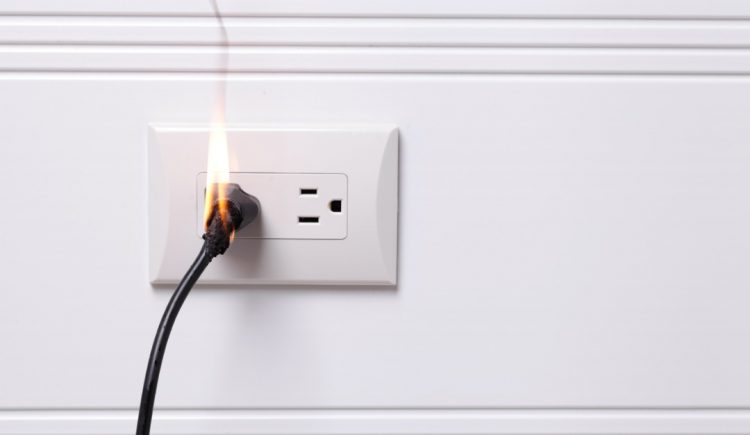A house fire is a terrifying thought, yet a reality for many homeowners. House fires can instantly destroy a home and its belongings and, in the worst-case scenarios, harm the individuals in the home. Therefore, the most critical first step is to take preventative steps to protect your home and family members from a potential house fire. Knowing the most common causes of house fires can help you put the measures in place to help prevent this type of tragedy in your home. Read on to learn more about the top causes of house fires.
Grease fires
Cooking is part of the daily routine; however, exercising caution is integral to the process — especially when cooking with grease. Grease is highly flammable and grease fires can start in stoves or ovens. When oil gets hot enough, it can spontaneously combust. Keeping your cookware, oven and stove top clean is an essential first step. When you’re cooking food that creates grease, such as bacon, it’s crucial to stay in the kitchen to keep an eye on the food.
Small kitchen appliances
Small kitchen appliances, such as griddles or toasters, can result in flames if left unattended. To help prevent potential fires, clean these appliances by removing pieces of food, crumbs and any food residue. Also, make sure they are cooled down before you store them away.
Outdoor grills
Outdoor grills can be a source of home fires if they are too close to a wood structure, such as a fence or deck, or too close to the house. Therefore, be aware of the grills’ proximity to other structures before designing the grilling area.
Electrical fires
Electrical fires can result from short circuits, loose connections and old wiring. Electrical fires start in areas that aren’t visible and can quickly ignite a major fire. A correctly installed electrical system and hiring a professional to make electrical improvements and repairs is vital to your home’s safety.
Candles
Candles add the ambiance you crave, but being diligent about their placement and burn time is essential to creating a safe atmosphere. When you light candles, never leave them unattended and keep them at least one foot away from adjacent materials. Battery-powered flickering candles are an excellent alternative to wax candle.
Christmas trees
The holiday season often has an uptick in house fires. Real evergreen trees can be a fire risk as they dry out during the holiday season and are a fire risk. A hot light or electrical spark can instantly set the tree on fire, which can quickly spread throughout the room.
Chemical fires
Chemicals, such as gasoline, can be responsible for house fires. This can occur if an open flame reaches the fumes. Keeping any chemicals you store at home, such as gasoline, in a proper container that is protected from heat can help prevent a chemical fire. It’s equally as important to avoid letting any chemical-soaked rags accumulate.











